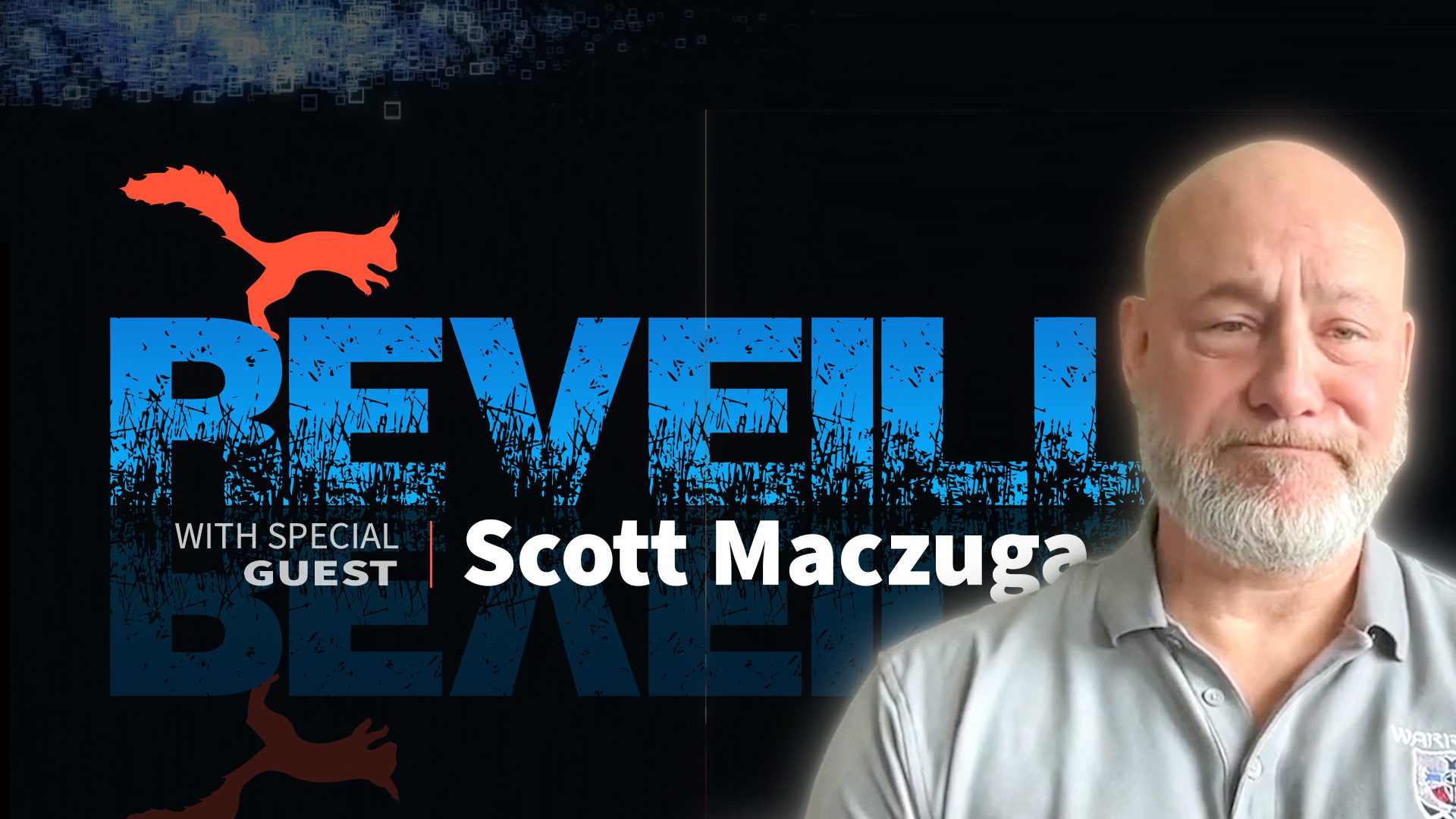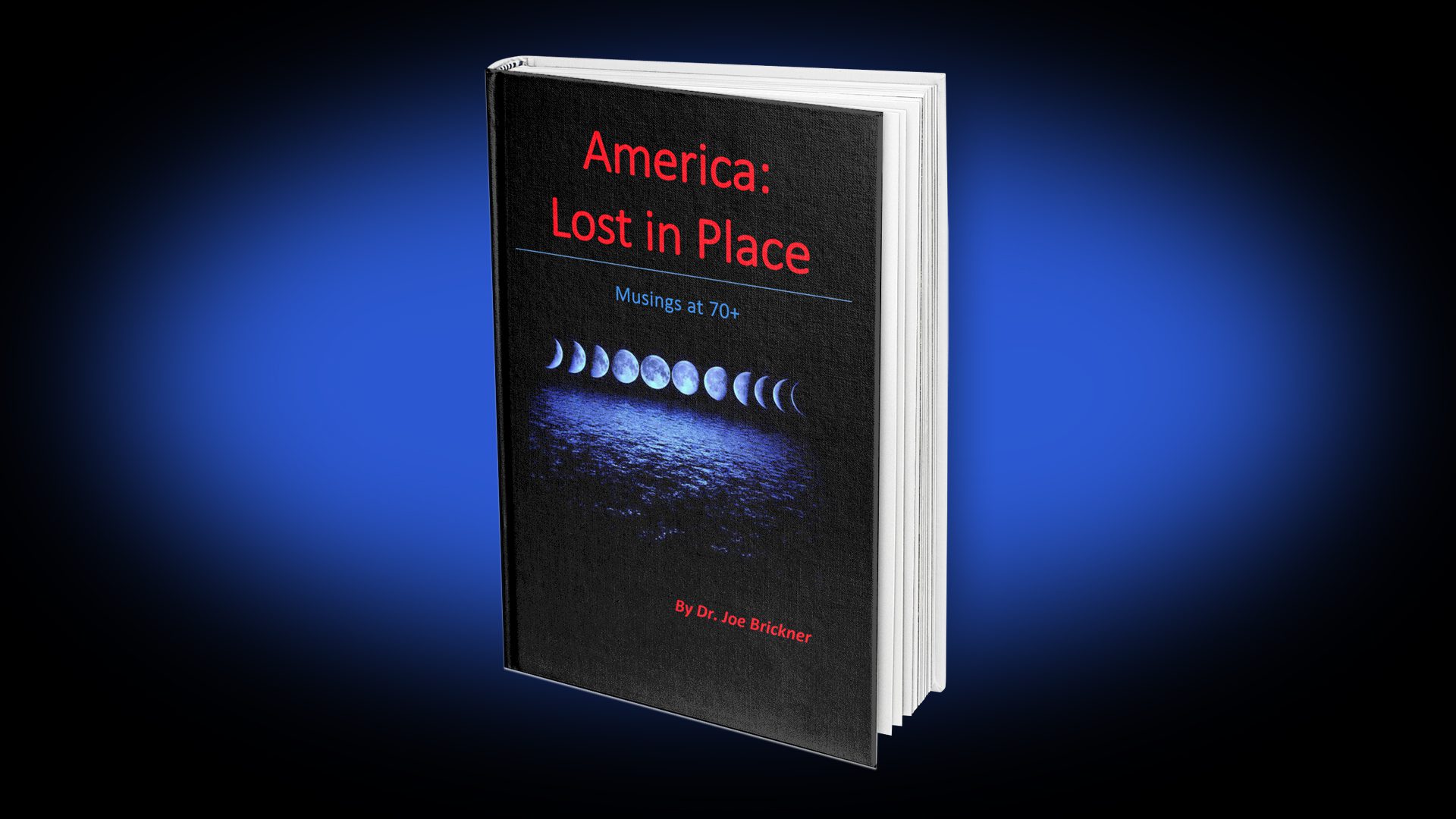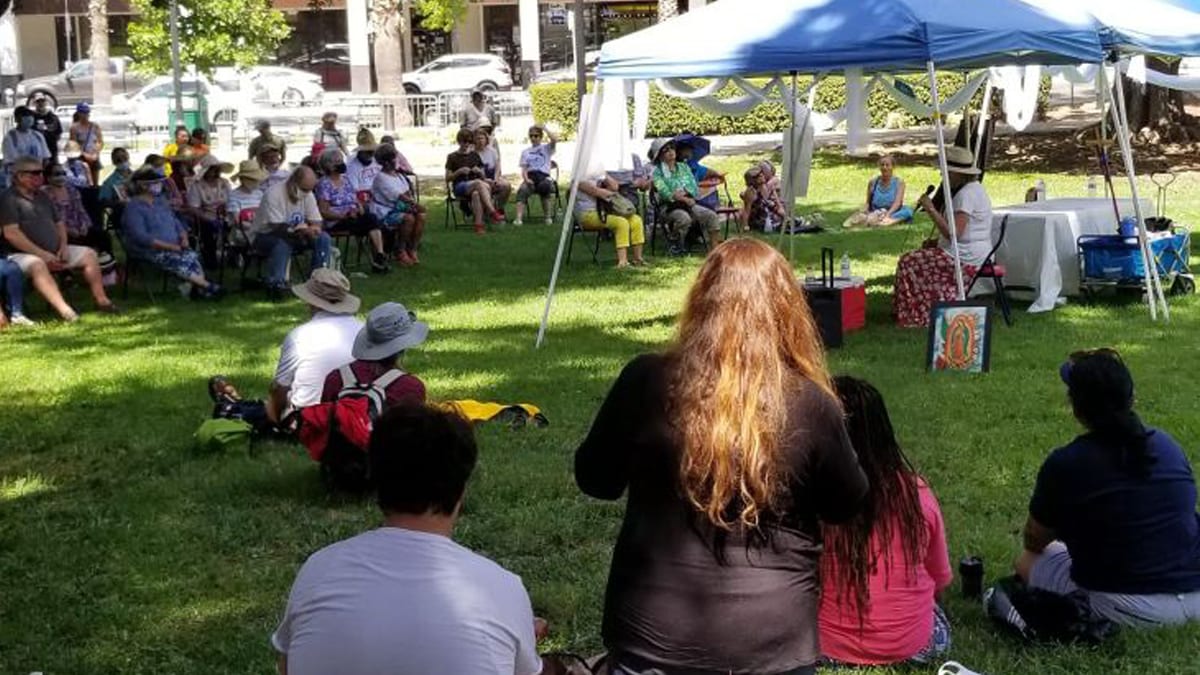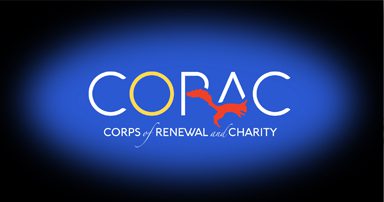| Darkest Before the Dawn | 2024-04-15 | Charlie's Brief, Featured Media | charlie's brief, brief, video, prolife, abortion | charlies-brief featured-media corac-leaders-forum |
| CORAC Newsletter | 2024-04-15 | CORAC Leaders Forum, National News, Featured Media | news, newsletter | corac-leaders-forum national-news featured-media |
| From the Cockpit of the Subaru | 2024-04-15 | CORAC Leaders Forum, Featured Media | newsletter column, charlie's writings, charlie johnston | corac-leaders-forum featured-media |
| Beware Spiritual Bullies | 2024-04-10 | Charlie's Brief, Featured Media | charlie's brief, brief, video, gurus, spiritual bullies, formulas | charlies-brief featured-media corac-leaders-forum |
| Mark Kollar – Catholic Healing Evangelist | 2024-04-01 | Featured Media, Reveille | reveille, podcast, video, mp, healing ministry, miraculous healings | featured-media reveille corac-leaders-forum |
| In a Nutshell | 2024-03-27 | Charlie's Brief, Featured Media | charlie's brief, brief, video, apparitions, sacred scripture | charlies-brief featured-media corac-leaders-forum |
| Do the Right Thing | 2024-03-16 | Charlie's Brief, Featured Media | charlie's brief, brief, battle, doing | charlies-brief featured-media corac-leaders-forum |
| The Hour of Our Discontent | 2024-03-14 | Charlie's Brief, Featured Media | charlie's brief, brief, battle, doing | charlies-brief featured-media corac-leaders-forum |
| Going My Way? | 2024-03-07 | Charlie's Brief, Featured Media | charlie's brief, brief, advent, christmas, the manger | charlies-brief featured-media corac-leaders-forum |
| Paul List – Mount Doom | 2024-02-10 | Featured Media, Reveille | reveille, podcast, video, joe gallagher, paul lint, tolkien, artificial intelligence | featured-media reveille corac-leaders-forum |
| The Red Squirrel | 2024-01-14 | CORAC Leaders Forum, Featured Media | video, alert, membership, squirrels | corac-leaders-forum featured-media |
| Kyoshi Scott Maczuga – Christian Warriors | 2023-12-20 | Featured Media, Reveille | reveille, podcast, scott maczuga, physical fitness, discipline, physical training, martial arts, self defense, video, joe gallagher | featured-media reveille corac-leaders-forum |
| Blessings to You This Christmas | 2023-12-15 | CORAC Leaders Forum, Featured Media | video, advent, christmas, christmas card | corac-leaders-forum featured-media |
| What a Glorious Christmas This Is | 2023-12-15 | Charlie's Brief, Featured Media | charlie's brief, brief, advent, christmas, the manger | charlies-brief featured-media corac-leaders-forum |
| Jesse Romero – Defense! | 2023-12-06 | Featured Media, Reveille | reveille, physical fitness, discipline, self defense, video, joe gallagher, coracast, jesse romero, spiritual fitness | featured-media reveille corac-leaders-forum |
| Dare Greatly | 2023-12-05 | Charlie's Brief, Featured Media | podcast, charlie's brief, video | charlies-brief featured-media corac-leaders-forum |
| Leave the Gun. Take the Cannoli. | 2023-12-01 | Charlie's Brief, Featured Media | podcast, charlie's brief, brief, video | charlies-brief featured-media corac-leaders-forum |
| CORAC Global Zoom Session 5 (Video) | 2023-11-06 | CORAC Leaders Forum, Featured Media, Global Meetings | video, global meeting, coracast | corac-leaders-forum featured-media global-meetings |
| Doug Barry – Keeping It Simple | 2023-10-11 | Featured Media, Reveille | preparedness, reveille, podcast, discipline, video, joe gallagher, doug barry, brcoalition | featured-media reveille corac-leaders-forum |
| Blessing of the Lost Girls | 2023-10-06 | Charlie's Brief, Featured Media | podcast, charlie's brief, video, ja jance | charlies-brief featured-media corac-leaders-forum |
| A Game of Baseball | 2023-10-03 | Charlie's Brief, Featured Media | podcast, charlie's brief, video | charlies-brief featured-media corac-leaders-forum |
| Belling The Cat | 2023-09-21 | Charlie's Brief, Featured Media | podcast, charlie's brief, video | charlies-brief featured-media corac-leaders-forum |
| A Wisconsin Field Day – Back to Basics | 2023-08-19 | Featured Media, Reveille | preparedness, reveille, podcast, video, joe gallagher, home skills, farino's, region 9, field day, wisconsin | featured-media reveille corac-leaders-forum |
| It Is the Religion of Ignorance That Tyranny Begins | 2023-08-14 | Charlie's Brief, Featured Media | podcast, charlie's brief, video | charlies-brief featured-media corac-leaders-forum |
| The World of Squirrels? | 2023-08-09 | Charlie's Brief, Featured Media | podcast, charlie's brief, video | charlies-brief featured-media corac-leaders-forum |
| Regular Podcast | 2023-08-07 | CORAC Leaders Forum, National News, Featured Media | podcast, video, chatting with charlie, seven questions, dr. joe | corac-leaders-forum national-news featured-media |
| A Heritage Deeply Embedded in the American DNA | 2023-07-31 | Charlie's Brief, Featured Media | podcast, charlie's brief, video | charlies-brief featured-media corac-leaders-forum |
| A Dead Parrot Sketch | 2023-07-27 | Charlie's Brief, Featured Media | podcast, charlie's brief, video | charlies-brief featured-media corac-leaders-forum |
| Be a Light to the Homebound | 2023-07-24 | CORAC Leaders Forum, National News, Leader Resources, Downloads (LF) | go forth, home visits, initiative, community | corac-leaders-forum national-news leader-resources downloads-lf |
| Be a Light at the Supermarket | 2023-07-19 | CORAC Leaders Forum, Downloads (LF) | go forth, initiative, community charity | corac-leaders-forum downloads-lf |
| CORAC Global Zoom Session 4 (Video) | 2023-07-17 | CORAC Leaders Forum, Featured Media, Global Meetings | video, global meeting, coracast | corac-leaders-forum featured-media global-meetings |
| Continue Hoeing the Beans | 2023-06-29 | Charlie's Brief, Featured Media | podcast, charlie's brief, video | charlies-brief featured-media corac-leaders-forum |
| Aslan is on the Move | 2023-06-26 | Charlie's Brief, Featured Media | podcast, charlie's brief, video | charlies-brief featured-media corac-leaders-forum |
| Bind Yourself to God’s Will | 2023-06-20 | Charlie's Brief, Featured Media | podcast, charlie's brief, video | charlies-brief featured-media corac-leaders-forum |
| Finding Our Courage | 2023-06-13 | CORAC Leaders Forum, Leader Resources, General Leaders Forum Discussion, Downloads (LF) | leadership education, leadership, courage | corac-leaders-forum leader-resources general-leaders-forum-discussion downloads-lf |
| Be the Lighthouse | 2023-05-23 | Charlie's Brief, Featured Media | podcast, charlie's brief, video | charlies-brief featured-media corac-leaders-forum |
| It’s Speeding Up Dramatically, Folks | 2023-05-18 | Charlie's Brief, Featured Media | podcast, charlie's brief, video | charlies-brief featured-media corac-leaders-forum |
| Go Forth | 2023-04-26 | CORAC Leaders Forum, Featured Media | video, go forth, initiative, side by side, community | corac-leaders-forum featured-media |
| CORAC Global Zoom Session 3 (Video) | 2023-04-24 | CORAC Leaders Forum, Featured Media, Global Meetings | video, global meeting, coracast | corac-leaders-forum featured-media global-meetings |
| Judgment Call | 2023-04-10 | Charlie's Brief, Featured Media | podcast, charlie's brief, video | charlies-brief featured-media corac-leaders-forum |
| The Misery Farm | 2023-03-31 | Charlie's Brief, Featured Media | podcast, charlie's brief, video | charlies-brief featured-media corac-leaders-forum |
| A New Ally | 2023-03-30 | Charlie's Brief, Featured Media | podcast, charlie's brief, video | charlies-brief featured-media corac-leaders-forum |
| From the Ground Up | 2023-03-28 | CORAC Leaders Forum, Featured Media | video, leadership education, leadership, coracast, teams, grassroots, mp, team leaders | corac-leaders-forum featured-media |
| CORAC Global Airmeet Session 2 (Video) | 2023-02-28 | CORAC Leaders Forum, Featured Media, Global Meetings | video, global meeting, coracast | corac-leaders-forum featured-media global-meetings |
| A Tower of Babel Moment | 2023-02-13 | Charlie's Brief, Featured Media | podcast, charlie's brief, video | charlies-brief featured-media corac-leaders-forum |
| World Weariness | 2023-02-08 | Charlie's Brief, Featured Media | podcast, charlie's brief, video | charlies-brief featured-media corac-leaders-forum |
| America: Lost in Place | 2023-02-08 | CORAC Leaders Forum, National News, Featured Media | dr. joe, books | corac-leaders-forum national-news featured-media |
| Get Back in Your Lanes | 2023-02-06 | Charlie's Brief, Featured Media | podcast, charlie's brief, video | charlies-brief featured-media corac-leaders-forum |
| How Do We Build Anew? | 2023-02-02 | Charlie's Brief, Featured Media | podcast, charlie's brief, video | charlies-brief featured-media corac-leaders-forum |
| Two Trains Crashing | 2023-01-29 | Charlie's Brief, Featured Media | podcast, charlie's brief, video | charlies-brief featured-media corac-leaders-forum |
| The Quiet Girding | 2023-01-25 | Charlie's Brief, Featured Media | podcast, charlie's brief, video | charlies-brief featured-media corac-leaders-forum |
| Keep Steady | 2022-12-26 | Charlie's Brief, Featured Media | podcast, charlie's brief, video | charlies-brief featured-media corac-leaders-forum |
| God’s Ways Are Not Man’s Ways | 2022-12-15 | Charlie's Brief, Featured Media | podcast, charlie's brief, video | charlies-brief featured-media corac-leaders-forum |
| Merry Christmas! | 2022-12-15 | Charlie's Brief, Featured Media | video, advent, christmas, christmas card | charlies-brief featured-media corac-leaders-forum |
| A Lot To Do In The New Year | 2022-12-09 | Charlie's Brief, Featured Media | podcast, charlie's brief, video | charlies-brief featured-media corac-leaders-forum |
| Region 8 Field Day | 2022-11-16 | CORAC Leaders Forum, Regional News, Other Media | preparedness, doug barry, field day, region 8, self sufficiency, mother miriam, community | corac-leaders-forum regional-news other-media |
| What’s Required Now | 2022-11-03 | Charlie's Brief, Featured Media | podcast, charlie's brief, video | charlies-brief featured-media corac-leaders-forum |
| Build The Right Mindeset | 2022-10-28 | Charlie's Brief, Featured Media | podcast, charlie's brief, video | charlies-brief featured-media corac-leaders-forum |
| A Structure of Neighbors | 2022-10-21 | Charlie's Brief, Featured Media | podcast, charlie's brief, video | charlies-brief featured-media corac-leaders-forum |
| Procession With Our Lady of Guadalupe | 2022-10-19 | CORAC Leaders Forum, Regional News, Other Media | prayer, field day, go forth, region 12, community, st. malo, mt. meeker, our lady of guadalupe, procession | corac-leaders-forum regional-news other-media |
| The Crisis in the Church Today Video | 2022-10-17 | Charlie's Brief, Featured Media | podcast, charlie's brief, video | charlies-brief featured-media corac-leaders-forum |
| Gun Laws Event (Video Photo Album) | 2022-10-03 | CORAC Leaders Forum, Regional News, Other Media | region 9, go forth, community, inspiration, 2nd amendment, gun safety, gun laws | corac-leaders-forum regional-news other-media |
| CORAC National Zoom Session 1 (Video) | 2022-09-21 | CORAC Leaders Forum, Featured Media, Global Meetings | video, global meeting, coracast | corac-leaders-forum featured-media global-meetings |
| CORAC National Zoom Session Invitation | 2022-09-01 | CORAC Leaders Forum, Featured Media, Global Meetings | video, global meeting, coracast, invitation | corac-leaders-forum featured-media global-meetings |
| It’s Here. It’s Now. (Video) | 2022-08-26 | Charlie's Brief, Featured Media | podcast, charlie's brief, video | charlies-brief featured-media corac-leaders-forum |
| Start Doing This Now (Video) | 2022-08-16 | Charlie's Brief, Featured Media | podcast, charlie's brief, video | charlies-brief featured-media corac-leaders-forum |
| Value Them Both – Special Podcast | 2022-07-26 | CORAC Leaders Forum, Regional News, Other Media | dr. joe, go forth, community, inspiration, prolife, activism, region 10 | corac-leaders-forum regional-news other-media |
| Think and Act Anew (Video) | 2022-07-22 | Charlie's Brief, Featured Media | podcast, charlie's brief, video | charlies-brief featured-media corac-leaders-forum |
| We’re The Guys That Do Stuff! (Video) | 2022-04-20 | Charlie's Brief, Featured Media | podcast, charlie's brief, video | charlies-brief featured-media corac-leaders-forum |
| A Chalk Talk (Video) | 2022-04-08 | Charlie's Brief, Featured Media | podcast, charlie's brief, video | charlies-brief featured-media corac-leaders-forum |
| Consider the Squirrels | 2022-01-22 | CORAC Leaders Forum, Inspiring Stories, Other Media | region 9, go forth, community, inspiration, squirrels | corac-leaders-forum inspiring-stories other-media |
| A Gut Punch to Mandatory Compliance | 2022-01-12 | Charlie's Brief, Featured Media | covid, charlie's brief, vaxx, charlie's writings | charlies-brief featured-media corac-leaders-forum |
| Region 8 Newsletter | 2021-12-10 | CORAC Leaders Forum, Regional News, Other Media | go forth, region 8, community, inspiration, regional newsletter | corac-leaders-forum regional-news other-media |
| Simple Quotes to Ponder in Charity | 2021-11-12 | CORAC Leaders Forum, General Leaders Forum Discussion, Downloads (LF) | leadership, initiative, inspiration, quotes | corac-leaders-forum general-leaders-forum-discussion downloads-lf |
| Simple Quotes to Ponder on the Road to Renewal | 2021-11-12 | CORAC Leaders Forum, General Leaders Forum Discussion, Downloads (LF) | leadership, initiative, inspiration, quotes | corac-leaders-forum general-leaders-forum-discussion downloads-lf |
| The J6 Project | 2021-11-11 | CORAC Leaders Forum, Top Stories, National News, Regional News, Leader Resources, Downloads (LF) | go forth, initiative, community, inspiration, activism, j6, j6 project | corac-leaders-forum top-stories national-news regional-news leader-resources downloads-lf |
| Stuff Every Leader Should Be Doing to Serve Well | 2021-11-03 | CORAC Leaders Forum, Leader Resources, General Leaders Forum Discussion, Downloads (LF) | leadership education, leadership, teamwork, servant | corac-leaders-forum leader-resources general-leaders-forum-discussion downloads-lf |
| Stuff We Should Be Doing Every Day | 2021-11-01 | CORAC Leaders Forum, Leader Resources, General Leaders Forum Discussion, Downloads (LF) | prayer, leadership education, leadership, teamwork | corac-leaders-forum leader-resources general-leaders-forum-discussion downloads-lf |
| What is CORAC? | 2021-10-31 | CORAC Leaders Forum, Top Stories, National News, Regional News, Leader Resources, General Leaders Forum Discussion, Other Media | about, corac | corac-leaders-forum top-stories national-news regional-news leader-resources general-leaders-forum-discussion other-media |
| Building Bridges (Updated) | 2021-09-19 | Inspiring Stories | go forth, community, inspiration, region 7, people's bridge, activism | inspiring-stories corac-leaders-forum |
| Bibles, Beans & Bullets | 2021-09-13 | CORAC Leaders Forum, Regional News, Other Media | preparedness, region 9, go forth, self sufficiency, community, inspiration | corac-leaders-forum regional-news other-media |
| Overcoming “Busyness” | 2021-09-08 | CORAC Leaders Forum, Leader Resources, Downloads (LF) | leadership education, leadership, time management | corac-leaders-forum leader-resources downloads-lf |
| The Map On The Wall | 2021-09-05 | CORAC Leaders Forum, Leader Resources, Downloads (LF) | leadership, teamwork | corac-leaders-forum leader-resources downloads-lf |
| Doing it Anyway | 2021-08-21 | Inspiring Stories | prayer, region 9, go forth, community, inspiration, prayer cards | inspiring-stories corac-leaders-forum |
| Taking a Stand | 2021-08-13 | Inspiring Stories | vaxx, vaccines, go forth, community, inspiration, region 14 | inspiring-stories corac-leaders-forum |
| Jab Religious Exemption Downloads | 2021-07-30 | Health & Wellness, Health News, CORAC Leaders Forum, Downloads (H&W), Downloads (LF) | vaxx, vaccines, vaxx exemption | health-and-wellness health-news corac-leaders-forum downloads-hw downloads-lf |
| Team Building Guide | 2021-06-16 | CORAC Leaders Forum, Leader Resources, Downloads (LF) | leadership education, leadership, teamwork, teambuilding | corac-leaders-forum leader-resources downloads-lf |
| Leaders Forum – General Discussion | 2021-06-15 | CORAC Leaders Forum, General Leaders Forum Discussion | conversation, discussion | corac-leaders-forum general-leaders-forum-discussion |
| Defending The Constitution | 2021-05-24 | Inspiring Stories | go forth, community, inspiration, region 7, sheriff mack, constitution | inspiring-stories corac-leaders-forum |
| Walking With The Real Presence | 2021-01-28 | Inspiring Stories | go forth, community, procession, inspiration, region 15, holy eucharist | inspiring-stories corac-leaders-forum |
| Celebrating Life | 2020-12-07 | Inspiring Stories | go forth, region 8, community, inspiration, prolife | inspiring-stories corac-leaders-forum |
| Living Rosary | 2020-08-15 | Inspiring Stories | rosary, go forth, initiative, community, inspiration, region 15 | inspiring-stories corac-leaders-forum |















































































Test comment.
Thank you MP. Good reminder and breakdown of busyness, what causes such and how we can work to mitigate the overload it places on our physical and mental capacity. It good you put to words what so many of us often use as an adjective to describe how our life currently is…busy.